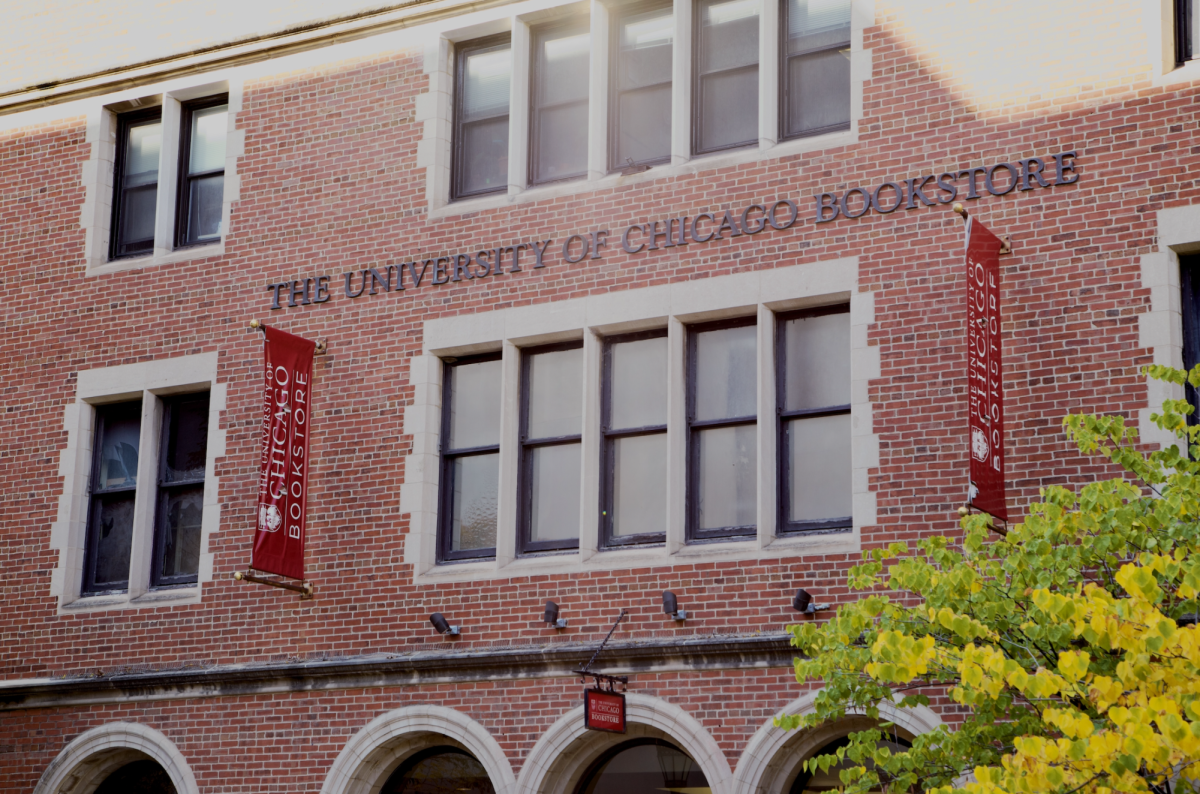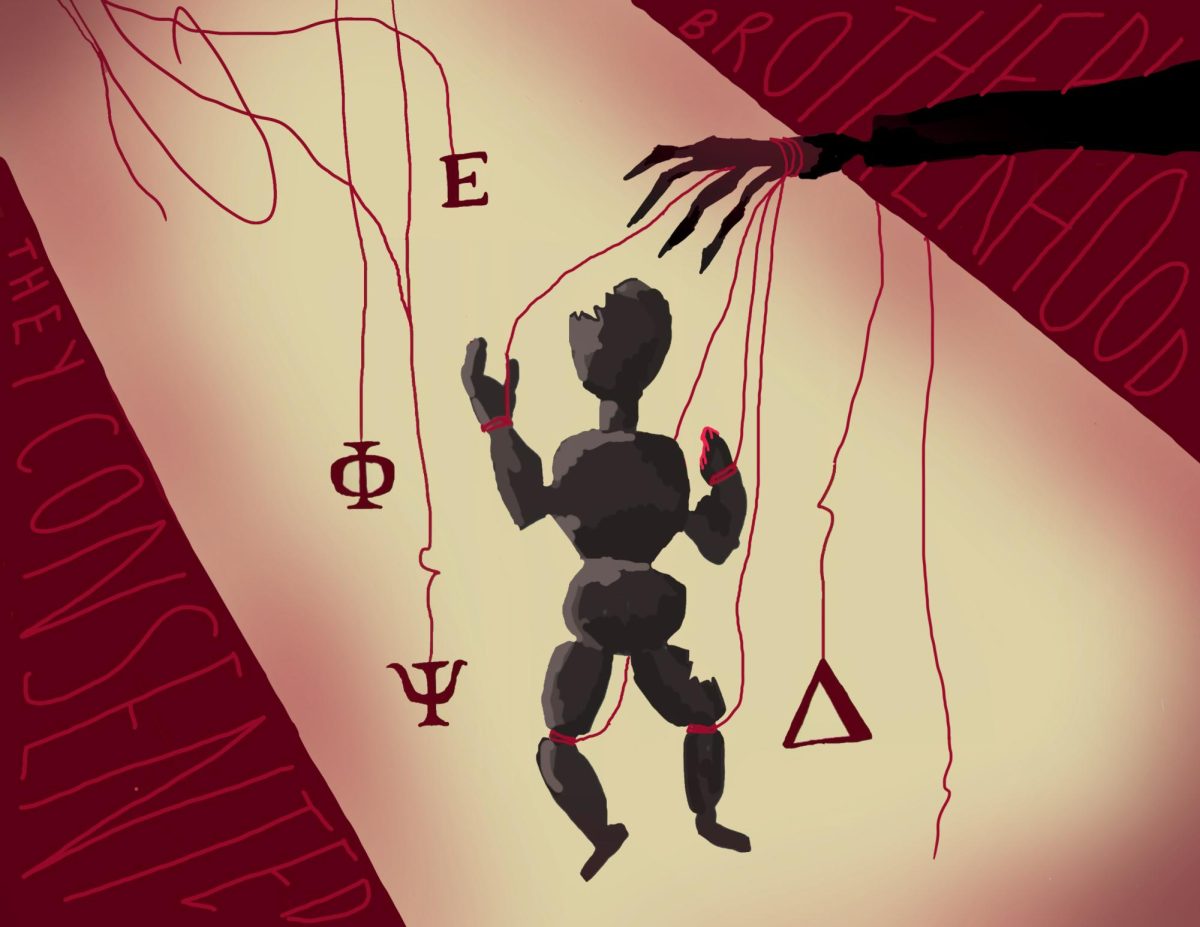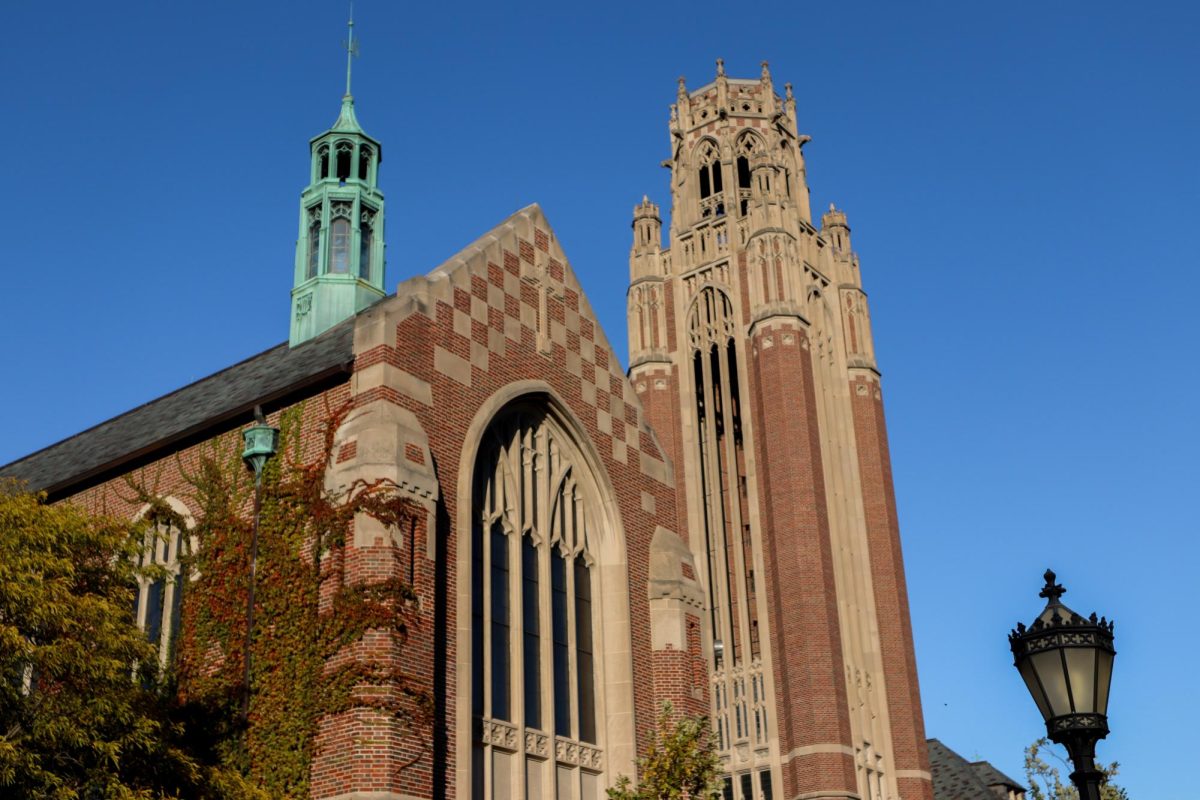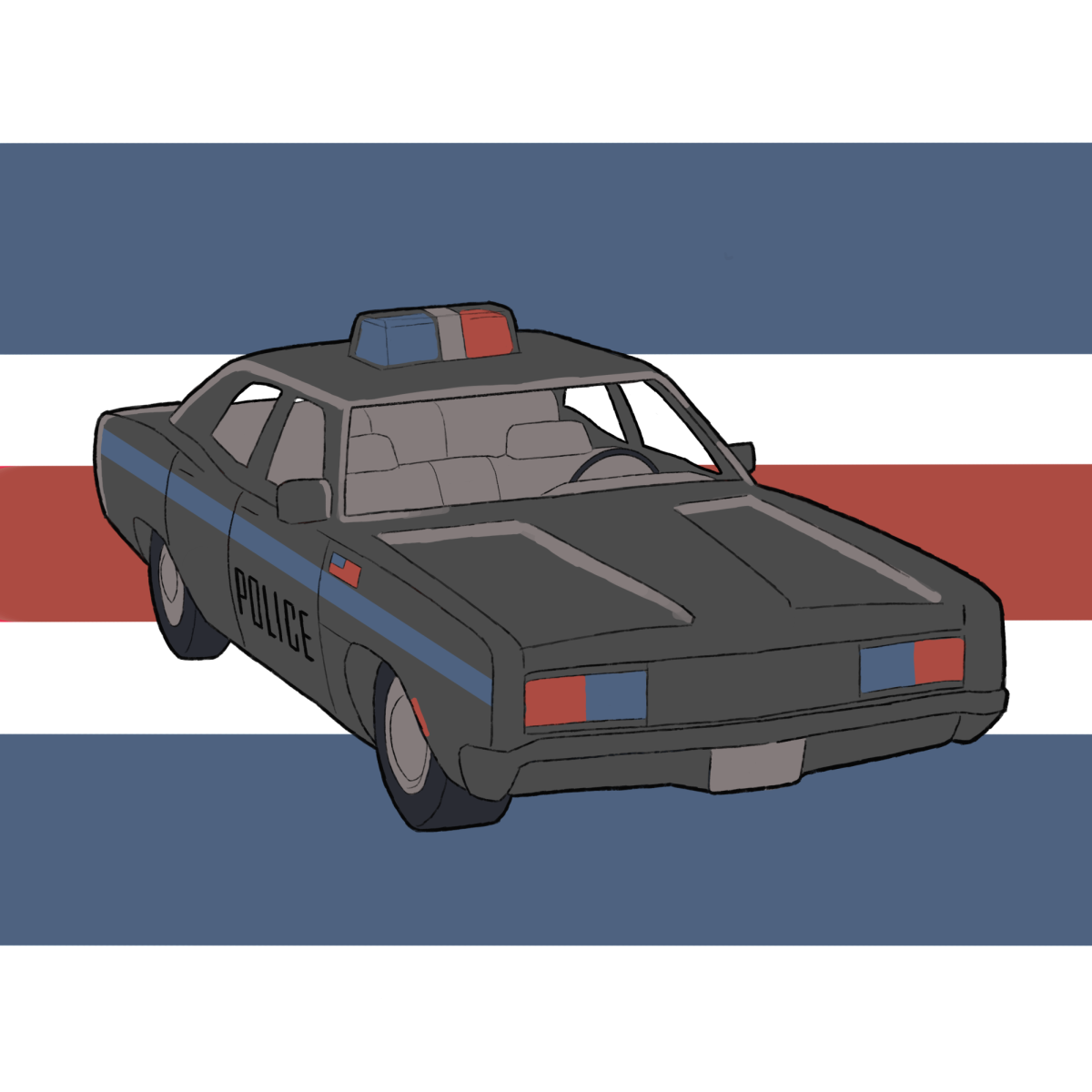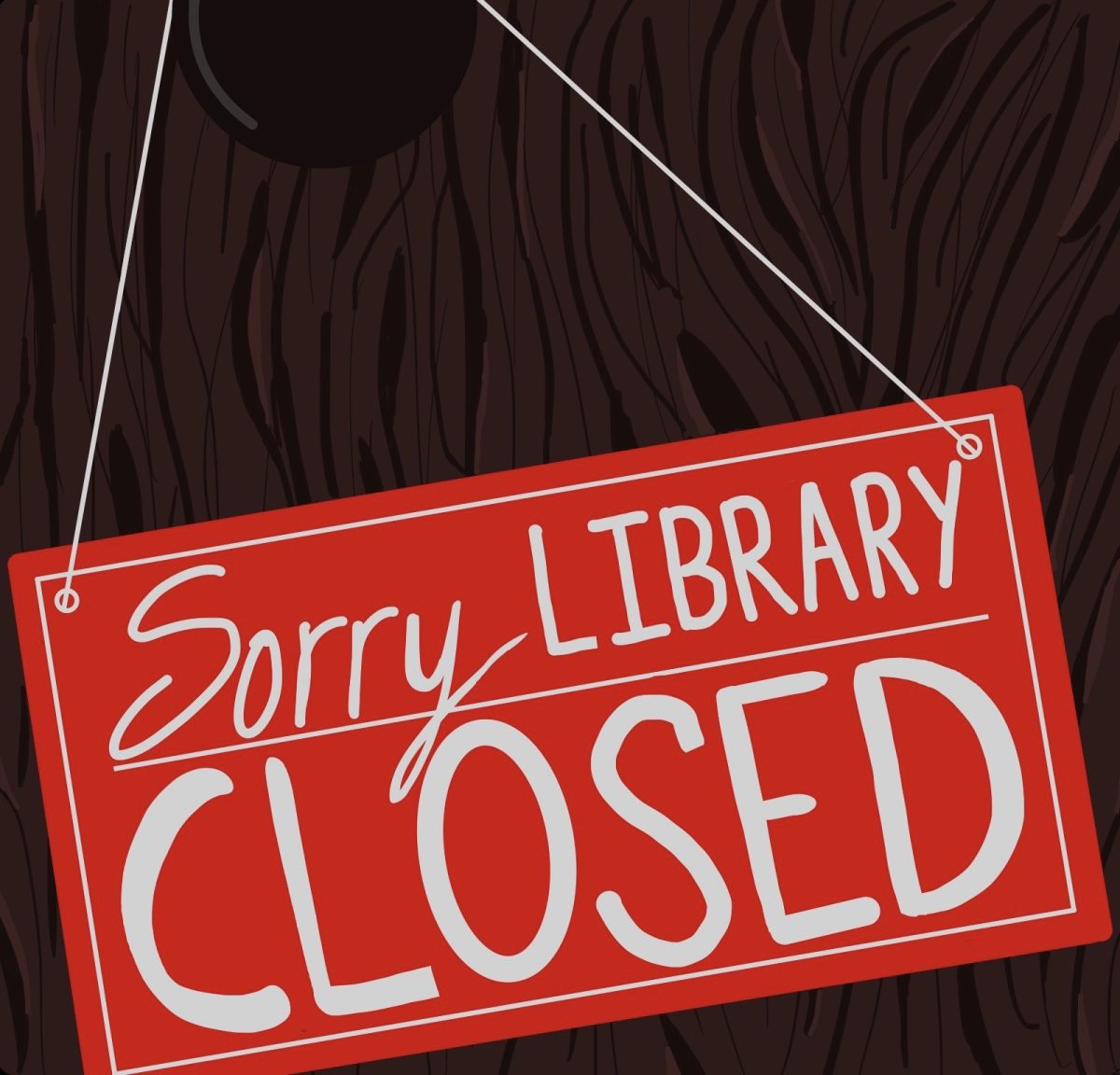Earlier in the school year when it was still nice outside, I’d make a point to get out and about with a regular walk on the quad. My route became pretty standard, and by late October, I’d come to expect a pass by Harper on the very southernmost end. Under the skyways that connect the southern buildings, I’d put on headphones and play some music—this particular time, it was Pink Floyd. The sound of the Midway’s speeding cars faded out, and for an instant, there were no thermal-wearing joggers in sight; I was left with just the gothic buildings, the trees, and the music. In this exact moment, I realized, it might as well have been 1973.
From there, my imagination spiraled. I was looking at the same sights that Carl Sagan would have experienced ten years earlier; in 1973, student Donald Johanson would have been completing his Ph.D.—and would discover the “Lucy” Australopithecus skeleton the very next year; Milton Friedman would have been on campus, driving the school of economic thought that now bears the “Chicago” name. All of this—and decades more of UChicago’s history—creates a legacy that each of us, as members of the University community, have our own partial claim to. We should make a point of embracing it.
Amid the more pressing daily issues of networking, living healthy social lives, and slogging through readings, I realized how much of this appreciation was, perhaps understandably, lost on me. The culture of ambition that so strongly defines us as members of an elite university puts optimizing for the future well above reflecting on the past. From this perspective, we focus on the potential to make our own legacy. At its most idealized, the goal is to create a world-changing invention or to pioneer an academic field; the past is seen less as something to remember than something to break from. And this mentality is, in many ways, positive. Looking to the future is what causes the growth that keeps us adding to the University’s story now and in years to come—and that same mentality is likely what fueled the past breakthroughs that we can now look back on.
Even so, there is value in finding room between all of that ambition and forward thinking to celebrate the University’s past. At the risk of sounding like a commencement address, as students at the University, we assume a role in the legacy of something bigger than ourselves. To me this is empowering: there’s an incredible amount of confidence in knowing that the same institutions that teach us have mastered their craft to the point that they have changed their entire fields—academic, social, or otherwise—and the world, more broadly. It is also motivating, as these massive strides from the past have been taken from the same pool of resources and potential that we now possess. What’s stopping us, then, from going further?
It’s important to recognize that taking a step back to appreciate the University’s rich history does not mean holding a romantic obsession with what once was. For one, what “once was” is just as present today: our modern University community continues in the same spirit as those who came before, just in earlier stages of development and recognition. The research hasn’t stopped, and the work being done today is just as groundbreaking as the achievements of the past. The weighty “history” that we seek to appreciate, then, includes the very contemporary innovation that is going on around us. It is also worth noting that the UChicago of the past does not deserve nostalgic romanticization. There are complex legacies to unpack before we get to that point, and conversations should be had about how we, as an institution, discuss them. These conversations ought to be remembered as well; maybe they’re best read as a reminder that by adding the individual contributions of our own to the University, we can play our own role in improving its legacy.
Nischal Sinha is a first-year in the College.



